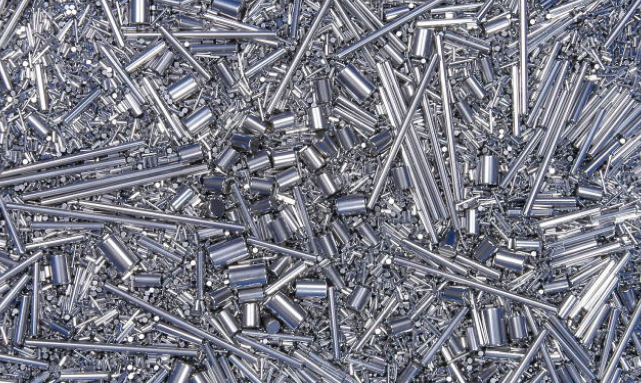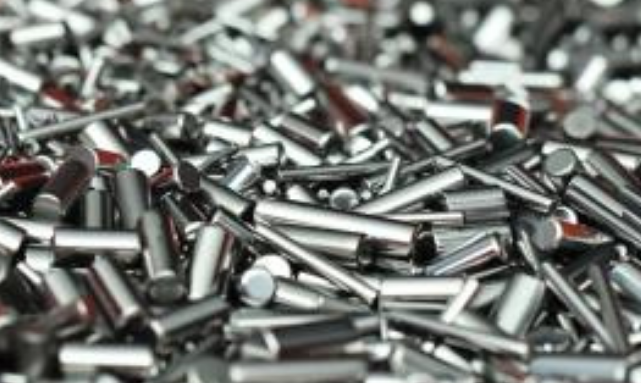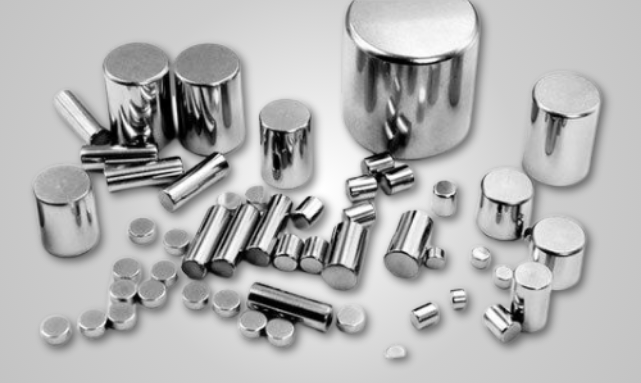At SKP Bearing Industries Limited, we specialize in manufacturing high-quality needle rollers, cylindrical rollers, pins, steel balls, range for rollers, and range for balls. With over 30 years of experience, we proudly serve a wide array of industries globally, delivering advanced, reliable, and customized rolling elements. Our diverse product range caters to various applications, creating value and expanding our global presence.
In 2008, we expanded into the renewable energy sector with strategic investments in windmill projects. Since then, our dedication to renewable energy has remained strong, focusing on both generation and captive consumption. In 2014, our footprint in the renewable energy space grew stronger with the establishment of a solar power plant in Baroda and wind mills in Mandsaur, Madhya Pradesh. This expansion solidified our reputation as a dependable purveyor of power and electricity solutions, serving major corporations nationwide.
SKP stands out in the market as a premier manufacturer of needle rollers, cylindrical rollers, pins, and steel balls. Supplied to reputable bearing manufacturers and OEMs both domestically and internationally, our products are renowned for their superior quality and fidelity to innovation. With over three decades of experience, SKP has established itself as a trusted brand, offering exceptional products widely used in automotive, textile, electronics, and other sectors.
Bearings play a crucial role in reducing friction and supporting rotational or linear movement in various machines and equipment. Depending on the application, different types of bearings offer unique advantages in terms of load capacity, precision, maintenance, and cost efficiency.
Understanding the differences between these types is key to selecting the right bearing for specific industrial needs.

Bearing Roller (BR)
Industry applications that demand high load handling and low friction depend heavily on bearing rollers. They are highly appreciated for their adaptability and dependability in heavy-duty applications, which enable them to rotate smoothly and effectively even in difficult circumstances.
Type: Rolling-element bearing
Friction: Less friction from the rolling components means more seamless operations.
Load Capacity: High-load, heavy-duty applications where durability is essential are a good fit for this load capacity.
Maintenance: To guarantee longevity and optimum performance, frequent lubrication is necessary.
Cost: Moderate; strikes a balance between price and functionality.
Tolerance Accuracy: Standard accuracy appropriate for uses without a need for perfect precision.
Industries: Wind energy (turbines), industrial equipment, automobiles, and construction machinery.

Bearing Plain (BP)
Sliding bearings, also known as plain bearings, offer a straightforward but efficient solution for applications needing high load capacity at low speeds. They are especially well suited for heavy machinery where low maintenance costs and cost effectiveness are top concerns because of their sturdy design.
Type: Sliding (plain) bearing
Friction: Ideal for slow-motion systems, higher friction is caused by the sliding surfaces.
Load Capacity: Adapts well to moderate loads in low-speed applications.
Maintenance: Little is required, usually just sporadic wear inspections.
Cost: This is an economical option for low-speed, heavy-load needs.
Tolerance Accuracy: Low accuracy; best for applications where precision is not critical.
Industries: Heavy equipment (cranes, hydraulic lifts), agriculture (tractors, tillers), marine (rudder bearings), structural applications.

Bearing Precision Machined (BPM)
Precision machined bearings are useful in applications where high levels of accuracy and efficiency are required. As the preferred option for high-end machinery, they serve industries where tight tolerances and low friction are necessary for optimum performance thanks to their incredibly precise manufacturing process.Type: Precision-machined rolling element bearing
Friction: Extremely low friction as a result of the parts' accuracy, guaranteeing maximum efficiency.
Load Capacity: Made to withstand high loads while upholding strict tolerances.
Maintenance: To preserve accuracy, thorough lubrication and maintenance are necessary.
Cost: As a result of precision engineering and materials, the cost is higher than for Bearing Roller and Bearing Plain.
Tolerance Accuracy: Extremely high accuracy, critical in precision-driven applications.
Industries: Precision machining (CNC, measuring instruments), robotics, aerospace, and medical equipment.

Bearing Roller (BR)
Industry applications that demand high load handling and low friction depend heavily on bearing rollers. They are highly appreciated for their adaptability and dependability in heavy-duty applications, which enable them to rotate smoothly and effectively even in difficult circumstances.
Type: Rolling-element bearing
Friction: Less friction from the rolling components means more seamless operations.
Load Capacity: High-load, heavy-duty applications where durability is essential are a good fit for this load capacity.
Maintenance: To guarantee longevity and optimum performance, frequent lubrication is necessary.
Cost: Moderate; strikes a balance between price and functionality.
Tolerance Accuracy: Standard accuracy appropriate for uses without a need for perfect precision.
Industries: Wind energy (turbines), industrial equipment, automobiles, and construction machinery.

Bearing Plain (BP)
Sliding bearings, also known as plain bearings, offer a straightforward but efficient solution for applications needing high load capacity at low speeds. They are especially well suited for heavy machinery where low maintenance costs and cost effectiveness are top concerns because of their sturdy design.
Type: Sliding (plain) bearing
Friction: Ideal for slow-motion systems, higher friction is caused by the sliding surfaces.
Load Capacity: Adapts well to moderate loads in low-speed applications.
Maintenance: Little is required, usually just sporadic wear inspections.
Cost: This is an economical option for low-speed, heavy-load needs.
Tolerance Accuracy: Low accuracy; best for applications where precision is not critical.
Industries: Heavy equipment (cranes, hydraulic lifts), agriculture (tractors, tillers), marine (rudder bearings), structural applications.

Bearing Precision Machined (BPM)
Precision machined bearings are useful in applications where high levels of accuracy and efficiency are required. As the preferred option for high-end machinery, they serve industries where tight tolerances and low friction are necessary for optimum performance thanks to their incredibly precise manufacturing process.Type: Precision-machined rolling element bearing
Friction: Extremely low friction as a result of the parts' accuracy, guaranteeing maximum efficiency.
Load Capacity: Made to withstand high loads while upholding strict tolerances.
Maintenance: To preserve accuracy, thorough lubrication and maintenance are necessary.
Cost: As a result of precision engineering and materials, the cost is higher than for Bearing Roller and Bearing Plain.
Tolerance Accuracy: Extremely high accuracy, critical in precision-driven applications.
Industries: Precision machining (CNC, measuring instruments), robotics, aerospace, and medical equipment.
A bearing's load capacity, accuracy, ease of maintenance, and cost-effectiveness can all vary depending on its intended use. While bearing rollers are ideal for heavy-duty, high-load applications, Bearing Plain bearings work well in low-speed, high-load settings. Contrarily, in high-precision machinery, Bearing Precision Machined bearings offer unmatched efficiency and accuracy.

Bearing Roller (BR)
Type: Rolling-element bearing
Friction: Less friction from the rolling components means more seamless operations.
Load Capacity: High-load, heavy-duty applications where durability is essential are a good fit for this load capacity.
Maintenance: To guarantee longevity and optimum performance, frequent lubrication is necessary.
Cost: Moderate; strikes a balance between price and functionality.
Tolerance Accuracy: Standard accuracy appropriate for uses without a need for perfect precision.
Industries: Wind energy (turbines), industrial equipment, automobiles, and construction machinery

Bearing Plain (BP)
Type: Sliding (plain) bearing
Friction: Ideal for slow-motion systems, higher friction is caused by the sliding surfaces.
Load Capacity: Adapts well to moderate loads in low-speed applications.
Maintenance: Little is required, usually just sporadic wear inspections.
Cost: This is an economical option for low-speed, heavy-load needs.
Tolerance Accuracy: Low accuracy; best for applications where precision is not critical.
Industries: Heavy equipment (cranes, hydraulic lifts), agriculture (tractors, tillers), marine (rudder bearings), structural applications.

Bearing Precision Machined (BPM)
Type: Precision-machined rolling element bearing
Friction: Extremely low friction as a result of the parts' accuracy, guaranteeing maximum efficiency.
Load Capacity: Made to withstand high loads while upholding strict tolerances.
Maintenance: To preserve accuracy, thorough lubrication and maintenance are necessary.
Cost: As a result of precision engineering and materials, the cost is higher than for Bearing Roller and Bearing Plain.
Tolerance Accuracy: Extremely high accuracy, critical in precision-driven applications.
Industries: Precision machining (CNC, measuring instruments), robotics, aerospace, and medical equipment.
A bearing's load capacity, accuracy, ease of maintenance, and cost-effectiveness can all vary depending on its intended use. While bearing rollers are ideal for heavy-duty, high-load applications, Bearing Plain bearings work well in low-speed, high-load settings. Contrarily, in high-precision machinery, Bearing Precision Machined bearings offer unmatched efficiency and accuracy.


